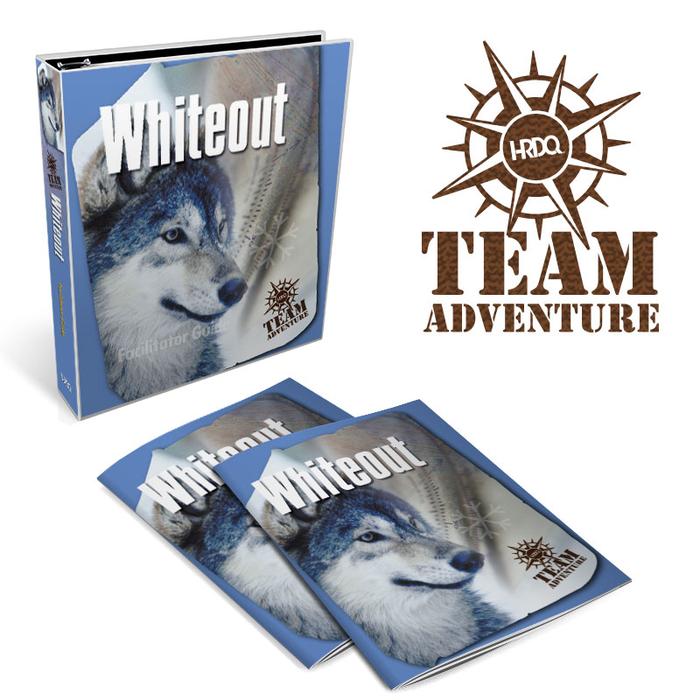Whiteout

by Stephanie McBrier Hannett
There's one reason why training simulations are a popular choice for team development training. They work. That's because they're an effective way to introduce the concept of synergy and help team members quickly develop vital group-process skills such as consensus decision making, problem solving, communication, and conflict resolution in a nonthreatening learning environment.
Each adventure simulation in HRDQ's Team Adventure Series starts with a suspense-filled scenario that challenges teams to work together to escape danger with only limited resources - and each other. While most people can rest assured knowing they'll never encounter these survival situations, they do experience the similar feelings of stress and conflict that accompany everyday organizational life.
The Whiteout Scenario
Selected to pilot a new team-building initiative, a work group sets off on a dog-sledding adventure through the wilds of Alaska. While this would normally be an opportunity of a lifetime, the team has been struggling with interpersonal conflicts and frequent disagreements.
The trip starts out bright and beautiful, but unexpectedly, the team encounters a horrendous blizzard. And then disaster strikes. One of the sleds - including the driver, guide, and dogs - crashes through the ice into shoulder-deep water. While the dogs escape unharmed, the driver and guide are left hypothermic and semiconscious. Now it's up to the team to put aside their differences and work together to save the injured and rescue themselves.
Learning Outcomes
- Learn five team skills for managing conflict
- Hone group problem-solving skills using a five-step process
- Understand four techniques to improve communication
- Discover the advantages of consensus decision making
- Experience the three elements of synergy
Whiteout is an excellent training tool for any team, especially those in the midst of conflict.
Following the introduction of the survival scenario, participants are challenged to rank 15 salvaged items - first as individuals and then a second time as a team. Participants compare their Team Scores to the Best Individual Score and expert rationale to determine if synergy was achieved.
The two-hour workshop explores the concept of synergy and helps teams to develop vital group-process skills such as decision making and problem solving. The exercise also includes an introduction to three elements of synergy, a five-step problem-solving technique, four critical group maintenance skills, and the importance of consensus decision making.
The Whiteout Facilitator Guide includes everything trainers need to lead a two-hour classroom training workshop, from comprehensive background information and expert rationale to a step-by-step workshop outline, expert rationale, optional activity, and a Microsoft PowerPoint presentation.
Uses and Applications
Whiteout can be used as a standalone training instrument or incorporated into a more comprehensive programme on teambuilding. It's also effective as a component for conflict resolution and decision making training programmes. Use the survival simulation to:
- Illustrate the concept of team synergy.
- "Break the ice" among new or conflicted teams.
- Give teams a nonthreatening opportunity to work together.
- Help teams practice consensus decision making.
- Improve active listening, probing, and confronting behaviors in a realistic setting.
- Train team leaders in team facilitation skills.
- Open or close a learning session.
- Introduce an organizational change.
- Interject a fun activity into an otherwise serious agenda.
- Supplement outdoor experiential learning.
Target Audience
Team members at any level, especially those who work under pressure
Product Type
Simulation
Focus
Consensus decision making and decision making under pressure
Time Required
Administration: 15 minutes
Workshop: 1 hour and 30 minutes
What to Order
Facilitator Set: Order one per trainer.
The comprehensive facilitator set includes everything trainers need to deliver Whiteout, including background information, administrative guidelines, a step-by-step workshop outline, expert rationale, an optional activity, alternative training designs, a Microsoft PowerPoint presentation, and sample participant materials.
Participant Guide: Order one per individual or participant.
The Participant Guide includes the adventure scenario, pressure-sensitive scoring, background information, five-step problem-solving process, how to improve team discussions, team reflection, and action-planning worksheets.